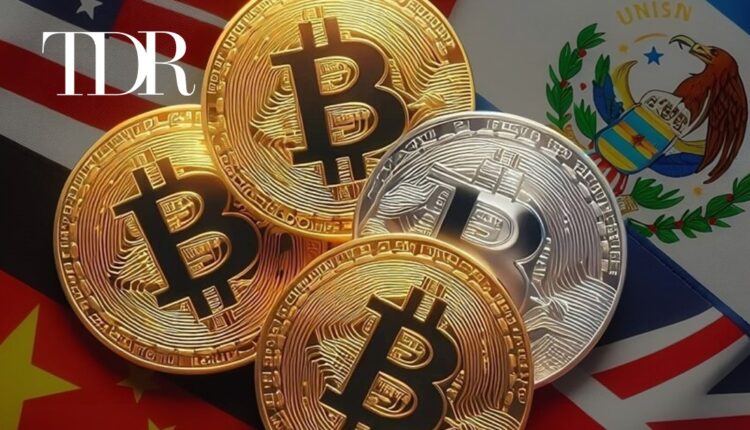
How Governments Bitcoin Holdings Influence the Market
The TDR Three Key Takeaways regarding Government Bitcoin Holdings and Market Impact:
- Governments collectively own $32.3 billion in Bitcoin, about 2.5% of the total supply.
- Most government-held Bitcoin comes from illegal seizures, like the U.S. from the Silk Road marketplace and China from the Plus Token scam.
- Governments should coordinate their management of Bitcoin holdings to prevent market disruptions and manipulation, fostering a more stable cryptocurrency market.
Nine governments collectively own $32.3 billion in Bitcoin, representing about 2.5% of the total supply. These holdings, mostly seized from illegal activities rather than invested in by the governments, have significant market implications. The website Bitcoin Treasuries tracks these holdings and reports that governments possess 517,414 BTC as of July 15, valued at approximately $32 billion.
Impact and Implications Governments’ involvement in the Bitcoin market through confiscated holdings is a significant factor in the cryptocurrency sector. The United States, China, and the United Kingdom are among the major holders of Bitcoin, with the U.S. holding 213,246 BTC ($13.4 billion), China holding 190,000 BTC ($11.9 billion), and the U.K. holding 61,000 BTC ($3.8 billion). These assets, primarily seized from illicit activities, introduce a layer of complexity to the Bitcoin market.

Most of the Bitcoin held by governments has been seized for illegal activities. For example, the U.S. government obtained its Bitcoin holdings from the Silk Road marketplace, while China seized its Bitcoin from the Plus Token scam. Such large holdings can significantly impact the market when governments liquidate these assets. A notable instance is Germany’s sale of 50,000 BTC, which led to a 15% price drop in the market. This indicates the potential market volatility stemming from government actions involving Bitcoin holdings.
The top government holders of Bitcoin include the United States, China, the United Kingdom, Ukraine, El Salvador, Bhutan, Venezuela, Finland, and Georgia. These holdings not only represent a substantial portion of the global coin supply but also pose a risk of market manipulation. There is concern that governments could collude to crash Bitcoin markets, using their significant holdings to manipulate prices.
For instance, Ukraine has 46,351 BTC ($2.9 billion) acquired through seizures and donations, while El Salvador, the first country to adopt Bitcoin as an official currency, and has 5,800 BTC ($364.2 million). Smaller holders like Bhutan, Venezuela, Finland, and Georgia have lesser amounts but still contribute to the overall government-controlled Bitcoin supply. The potential for market manipulation becomes evident when considering the cumulative impact of these holdings on the Bitcoin market.
The regulatory policies for Bitcoin vary across countries, with some imposing strict restrictions or bans on cryptocurrencies. Governments like China, Venezuela, and Russia have imposed such regulations, raising concerns about their use in geopolitical strategies. These actions underscore the need for establishing international frameworks and regulatory bodies to manage government-held Bitcoin, ensuring market stability and preventing manipulation.
Governments should coordinate their management of Bitcoin holdings to prevent market disruptions and manipulation, fostering a more stable cryptocurrency market. Regulatory frameworks are necessary to ensure stability and transparency as government actions will significantly influence Bitcoin’s future and market dynamics. Want to be updated on Cannabis, AI, Small Cap, and Crypto? Subscribe to our Daily Baked in Newsletter!



